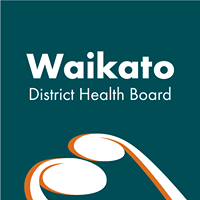One of the country’s largest mental health facilities is going smokefree - two years ahead of schedule.
The Henry Rongomau Bennett Centre at Waikato Hospital was to be smokefree by January 2011. Staff and consumers were key drivers behind the decision to go smokefree ahead of the deadline.
Health Minister Tony Ryall was on hand today (Friday) to celebrate the occasion.
Smoking is common among mental health consumers worldwide, said Adult Mental Health Service Clinical Director Dr Andrew Darby.
Smoking rates among Waikato consumers ranged between 50-90 per cent.
“This results in a significantly disproportionate burden of tobacco-related illness and earlier death when compared to non-smokers.
“As a service we recognise that many people want to quit but have found this difficult. We would like to support people to achieve a healthier lifestyle both for themselves and their whanau,” said Dr Darby.
The regional forensic unit and the adult mental health service are included in the smokefree zone. The only exclusion is ward 30 where there are 12 beds for older persons.
Waikato DHB hospitals went smokefree for staff and visitors in 2004 and for patients on 1 February 2006.
Under the DHB’s smoking policy, the Henry Rongomau Bennett Centre had an exemption for five years.
“We wanted to show the same sort of leadership as the DHB did,” said Dr Darby.
"The Adult Mental Health Service engaged with consumers and other stakeholders in order to determine how to implement the existing hospital smokefree policy in a user-friendly way. It will be important for consumers to tell staff at the time of admission if they smoke so that we can prescribe the necessary nicotine replacement therapy.
Smokefree Coordinator, Kate Dallas said the wards would have nicotine replacement therapy treatments such as gum, patches, lozenges and inhalers. Staff would also provide practical tips for coping without cigarettes during the hospital stay.
“We will also refer consumers to the specialist smoking cessation services, Aukati Kiapaipa or Quitline upon discharge from the wards if they wish to continue to be smokefree,” said Dr Darby.
"Every reasonable effort will be made to advise patients who smoke about the policy prior to their admission. We are asking GPs to help spread the word.
Briefing paper notes
▪ From 31 March 2009 the Henry Rongomau Bennett Centre at Waikato Hospital will be smokefree, both inside and outside for patients and visitors.
▪ This brings adult mental health patients in line with Waikato DHB's commitment to provide leadership and positive role models to reduce harm caused by tobacco use.
▪ The only exclusion will be ward 30 for older persons
▪ Waikato DHB hospitals went smokefree for staff and visitors in 2004 and patients on 1 February 2006.
▪ The Henry Rongomau Bennett Centre is one of the largest mental health facilities to go smokefree and does so two years ahead of schedule.
▪ The centre has 103 beds across general adult acute and forensic mental health
▪ Smoking rates amongst mental health consumers/Tangata Whaiora range between 50-90 per cent resulting in a significantly disproportionate burden of tobacco-related illness and earlier death when compared to non-smokers
▪ More than 250 staff work in Henry Rongomau Bennett Centre
▪ The staff and patients are key drivers behind this decision
▪ Evidence shows that most smokers want to quit - but they need lots of support to achieve this and nicotine is very addictive.
▪ Patients will have access to nicotine replacement therapy by way of gum, patches, lozenges or inhalers.
▪ The Adult Mental Health Service engaged with consumers/Tangata whaiora and other stakeholders in order to determine how to implement the existing hospital smokefree policy in a user-friendly way
▪ Every reasonable effort will be made to advise patients who smoke about the policy prior to their admission.
▪ Waikato DHB’s commitment is to reduce health inequalities and provide Henry Rongomau Bennett Centre service users with the same healthy and safe environment as our general hospital patients.
▪ As part of Health Waikato - Mental Health and Addictions Services provide a specialist mental health and addictions service to the 3 per cent of the Waikato region population most severely affected by mental illness and addiction.
▪ The regional Forensic Service covers the wider Midland region (Lakes, Taranaki and Bay of Plenty DHBs).
http://www.waikatodhb.govt.nz/page/pageid/2145843076/Henry_Rongomau_Bennett_Centre
http://www.waikatodhb.govt.nz/file/fileid/13456
ENDS



 PHARMAC: Newly Funded Medicine To Benefit 110 More People With Thyroid, Liver, And Kidney Cancer
PHARMAC: Newly Funded Medicine To Benefit 110 More People With Thyroid, Liver, And Kidney Cancer Plunket: Plunket’s New One Stop Community Hub Opens In Dunedin
Plunket: Plunket’s New One Stop Community Hub Opens In Dunedin NZ College of Public Health Medicine: Treaty Principles Bill Will Harm Māori Health And Fuel Racial Division
NZ College of Public Health Medicine: Treaty Principles Bill Will Harm Māori Health And Fuel Racial Division SPCA: Concert For Animals - A Hit With Pets And Humans Too
SPCA: Concert For Animals - A Hit With Pets And Humans Too NZ Olympic Committee: NZOC Remembers Olympian #166, Marise Chamberlain
NZ Olympic Committee: NZOC Remembers Olympian #166, Marise Chamberlain Victoria University of Wellington: A Festival Of Poetry And Film
Victoria University of Wellington: A Festival Of Poetry And Film 